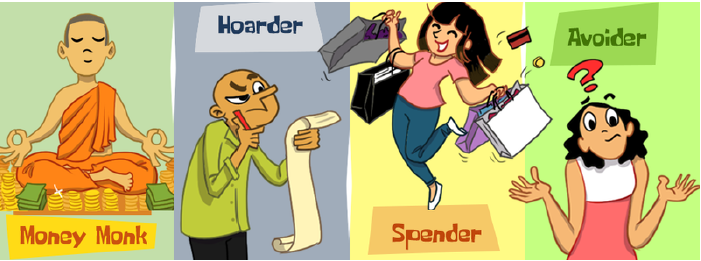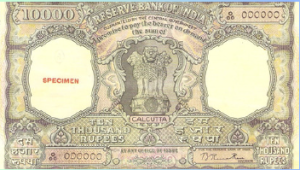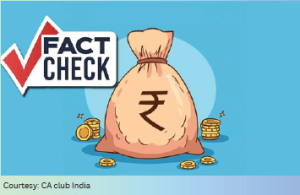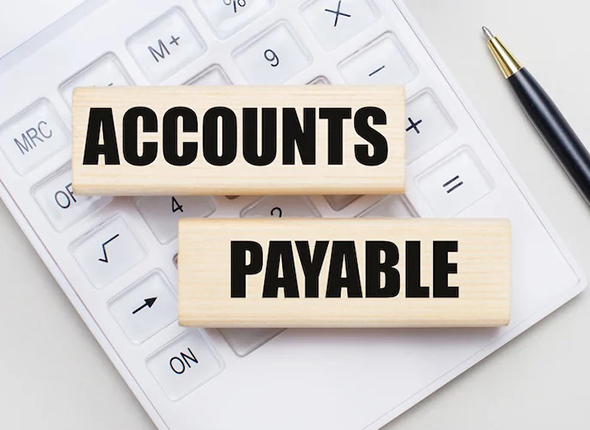When a company purchases goods on credit which needs to be paid back in a short period of time, it is known as Accounts Payable. It is treated as a liability since you bought goods/services on credit (without paying cash up front) which needs to be paid at a later point in time.
Accounts Payable as a term is not limited to companies. Even individuals like you and me have Accounts Payable. We consume electricity, telephone, broadband and cable TV network. The bills get generated towards the end of the month or a particular billing period. It means that the service provider gave you some service and sends the bill which needs to be paid by a certain date or else you will default.
This becomes Accounts Payable.
Example:
You are a company A who purchases goods from company B on credit (without paying cash up front). The amount raised needs to be paid back in 30 days.
Company A will record the purchase as accounts payable because company A has to pay company B.
Show What You Know
Multiple Choice Questions
Circle the correct answer for each question. Each question is worth 1 point.
- Which of the following is not an example of an asset?
a. A savings account
b. A house that you own
c. A credit card
d. A computer that you own
2. A lender is a person who:
a. owes you money
b. donates money
c. steals money
d. a person or organization from whom you can borrow money
3. When you borrow money, a lender wants to know if:
a. you are a nice person
b. you earn excellent grades
c. you have really good friends
d. you have the ability to pay back the loan
4. Risk refers to:
a. the amount of money that you borrow.
b. the possibility of financial loss.
c. the possibility of financial gain.
d. the amount that you pay for a loan.
5. What will a lender do with your collateral If you do not pay back your loan?
a. The lender will understand and return your collateral to you.
b. The lender will keep your collateral.
c.
What Do You Want to Learn About?
We want to answer your questions! After asking your parents’ permission, write to us at contactus@arthabodh.com and tell us the money questions and issues you would like to see covered in the next edition of Newsletter.
What is your Money Personality?

Would you wear only branded clothes or compare branded/non-branded for best value? Would you buy on the impulse or see some rationale behind any shopping? All of us have a “money personality” that influences how we think about money and make financial decisions. Some of this behaviour and perspective is influenced by our environment (parents, friends, advertisements etc.) but a lot is based on individual characteristics and preferences
You can start to get a sense of it pretty easily just by answering a few quick questions:
1. When you check the change in your pocket you see you have a lot of 1 Rupee coins. Would you:
A. Make sure you spend them the next chance you get
B. Save them in a money box
2. When you receive some pocket money for the week. Would you:
A. Spend it all but spread over the week
B. Spend what you need and save the rest
3. How important is it to get the best price for something you want? Will you put off buying an item to find a better price?
A. It’s nice to find a sale but not crucial
B. I won’t buy it if I think I can find it cheaper somewhere else
4. Do you remember the last three things you bought with your own money and what they cost?
A. No
B. Yes
5. Do you have a specific savings goal that you are working toward right now?
A. No
B. Yes
If most of your answers were A’s then you may fall more into the spending camp. If you answered mostly B’s, you’re probably a saver.
Regardless of where you are on the spend-save spectrum, it’s important to be aware of your relationship with money and recognize habits that are healthy as well as behaviours you may want to change. For example:
Spenders – What is a realistic savings goal that you can set and achieve for yourself by the end of this year? How will you go about meeting this goal? What does it require you to give up?
Savers – What is a purchase that you could save for, feel good about and would not require all of your money? What would make you feel comfortable about going through with that purchase (finding the best price, not buying it until your full savings is enough that it would be less painful, setting funds aside in a specific place and/or on a specific schedule?
Money Fun Facts

10,000 rupee-note
- 10,000 rupee-note was in circulation from 1954-1978
- The demonetisation of Rs.500 notes and Rs.1000 notes was not at all new
for our country. - Demonetisation of Rs.10,000 note was also made in earlier years. It was the
highest ever demonetisation done in 1938 and again in 1954.





